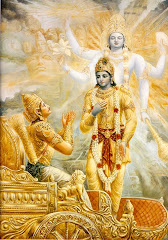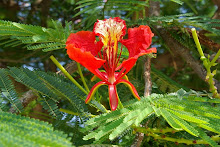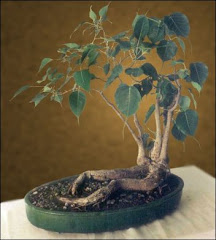
Swami Vivekananda (January 12, 1863–July 4, 1902), born Narendranath Dutta is the chief disciple of the 19th century mystic Ramakrishna Paramahamsa and the founder of Ramakrishna Mission. He is considered a key figure in the introduction of Vedanta and Yoga in Europe and America and is also credited with raising interfaith awareness, bringing Hinduism to the status of a world religion during the end of the 19th Century. Swami Vivekananda is considered to be a major force responsible for the revival of Hinduism in modern India. He is best known for his inspiring speech beginning with "Sisters and Brothers of America," through which he introduced Hinduism at the Parliament of the World's Religions at Chicago in 1893.
This is one of the most inspiring voice and discourse that I have ever heard, not surprising though, since it comes from one of the greatest son India has ever produced in her 6000 years of modern existence. The speech is in the finest of English. It is highly spiritual and metaphysical. I am certain that we will never hear anyone with such brilliance anywhere in this world, today!
Here is the link (courtesy YouTube) to the website containing the audio version of the speech (Welcome Address) by Swami Vivekananda at the World Parliament of Religions, in Chicago, September 11, 1893:
Following is the text of the speech (Welcome Address - Chicago, Sept 11, 1893):
Sisters and Brothers of America,
It fills my heart with joy unspeakable to rise in response to the warm and cordial welcome which you have given us. I thank you in the name of the most ancient order of monks in the world; I thank you in the name of the mother of religions, and I thank you in the name of millions and millions of Hindu people of all classes and sects.
My thanks, also, to some of the speakers on this platform who, referring to the delegates from the Orient, have told you that these men from far-off nations may well claim the honor of bearing to different lands the idea of toleration. I am proud to belong to a religion which has taught the world both tolerance and universal acceptance. We believe not only in universal toleration, but we accept all religions as true. I am proud to belong to a nation which has sheltered the persecuted and the refugees of all religions and all nations of the earth. I am proud to tell you that we have gathered in our bosom the purest remnant of the Israelites, who came to Southern India and took refuge with us in the very year in which their holy temple was shattered to pieces by Roman tyranny. I am proud to belong to the religion which has sheltered and is still fostering the remnant of the grand Zoroastrian nation. I will quote to you, brethren, a few lines from a hymn which I remember to have repeated from my earliest boyhood, which is every day repeated by millions of human beings: "As the different streams having their sources in different paths which men take through different tendencies, various though they appear, crooked or straight, all lead to Thee."
The present convention, which is one of the most august assemblies ever held, is in itself a vindication, a declaration to the world of the wonderful doctrine preached in the Gita: "Whosoever comes to Me, through whatsoever form, I reach him; all men are struggling through paths which in the end lead to me." Sectarianism, bigotry, and its horrible descendant, fanaticism, have long possessed this beautiful earth. They have filled the earth with violence, drenched it often and often with human blood, destroyed civilization and sent whole nations to despair. Had it not been for these horrible demons, human society would be far more advanced than it is now. But their time is come; and I fervently hope that the bell that tolled this morning in honor of this convention may be the death-knell of all fanaticism, of all persecutions with the sword or with the pen, and of all uncharitable feelings between persons wending their way to the same goal.
Note on his Speech at the World Parliament of Religions, Chicago: The Parliament of Religions opened on 11 September 1893 at the Art Institute of Chicago. On this day, Vivekananda gave his first brief address. He represented India and Hinduism. Though initially nervous, he bowed to Saraswati, the Goddess of learning and began his speech with, "Sisters and Brothers of America!" To these words he got a standing ovation from a crowd of seven thousand, which lasted for two minutes. Once silence was restored he began his address. He greeted the youngest of the nations in the name of "the most ancient order of monks in the world, the Vedic order of sannyasins, a religion which has taught the world both tolerance and universal acceptance." And he quoted two illustrative passages in this relation, from the Bhagavad Gita — "As the different streams having their sources in different places all mingle their water in the sea, so, O Lord, the different paths which men take, through different tendencies, various though they appear, crooked or straight, all lead to Thee!" and "Whosoever comes to Me, through whatsoever form, I reach him; all men are struggling through paths that in the end lead to Me." Despite being a short speech, it voiced the spirit of the Parliament and its sense of universality. Dr. Barrows, the President of the Parliament said, "India, the Mother of religions was represented by Swami Vivekananda, the Orange-monk who exercised the most wonderful influence over his auditors." He attracted widespread attention in the press, which dubbed him as the "Cyclonic monk from India". The New York Critique wrote, "He is an orator by divine right, and his strong, intelligent face in its picturesque setting of yellow and orange was hardly less interesting than those earnest words, and the rich, rhythmical utterance he gave them." The New York Herald wrote, "Vivekananda is undoubtedly the greatest figure in the Parliament of Religions. After hearing him we feel how foolish it is to send missionaries to this learned nation." Swami Vivekananda was regarded as, "undoubtedly the greatest figure in the parliament of religions," "beyond question, the most popular and influential man in the parliament." He spoke several more times at the Parliament on topics related to Hinduism and Buddhism. The parliament ended on 27 September, 1893. All his speeches at the Parliament had one common theme — Universality and stressed upon religious tolerance.
Pictures: in clockwise order:
1) Swami Vivekananda in Chicago, 1893 - On the photo, Vivekananda has written in Bengali, and in English: "One infinite pure and holy—beyond thought beyond qualities I bow down to thee."
2) Ramakrishna Paramahamsa.
3) Swami Vivekananda at the Parliament of Religions, Chicago, 1893.
















Good post and link to youtube. Thanks! The first speech which you have posted here is one of my favorite speeches of all times. There is an audio drama on Vivekananda's life which I heard on audio tape when I was in class nine or ten. This cassette tape made by Ramkrishna Mission in Bengali is a masterpiece. Do try and listen to it sometime. Take care!
ReplyDelete@ Rajdeep: Thanks... will try and catch it.
ReplyDeletethanks for updating like this. anuj kumar pandey.
ReplyDelete